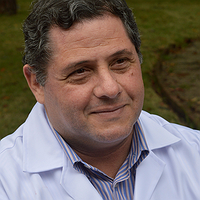Overview
A Guest Lecture by Roger Chammas on Apoptosis-Induced Tumor Cell Proliferation and its Consequences to Chemo-and Radio-Resistance in Cancers.
Date and Time:
January 22th 2025 from 12:00 pm - 2:00 pm ET
Location:
NCI Shady Grove
9609 Medical Center Dr, Rockville, MD 20850
T Level Seminar 110
This is an in-person meeting. A webex option will be available. It is open to NIH & NCI staff.
Registration is required.
Meeting Overview:
Our laboratory focuses on the mechanisms for cancer treatment failure, as a platform for proposing novel diagnostic and therapeutic strategies to cancers. Lately, we have been focusing on the role of signals released by dying tumor cells to both residual tumor cells and cells within the tumor microenvironment. I will show evidence that some of these signals orchestrate (neoplastic) tissue repair and (tumor) regrowth. Among these pathways, I will focus on lipid mediators and the impact of the inhibition of their biosynthesis as cancer treatment adjuvants.

Roger Chammas, MD, PhD.
Professor of Oncology at the University of São Paulo, Medical School. Director of the Center for Translational Research in Oncology (Instituto do Câncer do Estado de São Paulo) Founding Director of the Comprehensive Center for Precision Oncology, Universidade de São Paulo
rchammas@usp.br
Biosketch: Roger Chammas got his MD at the Medical School, USP (1988) and his PhD in Biochemistry at the same university, working at the Ludwig Institute for Cancer Research in São Paulo (1993). Chammas trained in glycobiology at the University of California, San Diego (1994-1997), moving back to São Paulo to establish his group, first at the Federal University of São Paulo and then at University of São Paulo, where he has been working since 2001. In 2008, he was appointed Full Professor of Oncology to establish the fundamental and translational research program at the newly established Instituto do Câncer do Estado de São Paulo, where he organized the Center for Translational Research in Oncology, currently one of the hubs for the Comprehensive Center for Precision Oncology at the University of São Paulo. Chammas had the opportunity to be a visiting researcher in several international centers, such as the Friedrich Miescher Institute, Basel; Harvard School of Public Health, Boston; Moffitt Cancer Research Center, Tampa; and University of California at Davis, as a Fulbright Scholar. He is member of the editorial board of journals such as Frontiers in Oncology, Cancer Biomarkers and the Journal of the National Cancer Institute. Chammas is a member of the Brazilian Academy of Sciences, a life member of the Union for International Cancer Control (UICC) fellow’s association and of the American Association for Cancer Research, where he serves in the Latin American Subcommittee of the Global Affairs Program.
His laboratory focuses on the mechanisms for cancer treatment failure, as a platform for proposing novel diagnostic and therapeutic strategies to cancers. Lately, his laboratory has been focusing on the role of signals released by dying tumor cells to both residual tumor cells and cells within the tumor microenvironment. I will show evidence that some of these signals orchestrate (neoplastic) tissue repair and (tumor) regrowth. Among these pathways, I will focus on lipid mediators and the impact of the inhibition of their biosynthesis as cancer treatment adjuvants.
